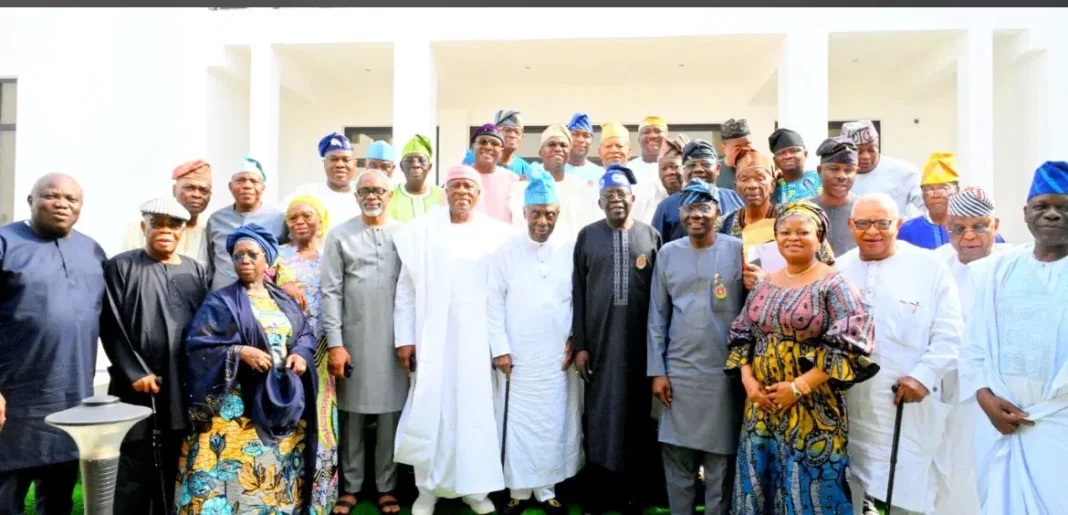After weeks of political uncertainty and a lingering legal battle over the removal of Mudashiru Obasa as Speaker of the Lagos State House of Assembly, President Bola Tinubu and key All Progressives Congress (APC) leaders have reached a resolution aimed at balancing interests and stabilizing the situation.
High-Level Interventions
Sources at the Presidential Villa revealed that Tinubu consulted several prominent figures, including former APC National Chairman Chief Bisi Akande, former Ogun State Governor Olusegun Osoba, Minister of Solid Minerals Dele Alake, and a former Lagos commissioner whose identity was withheld for political reasons.


Ahead of these discussions, a respected nonagenarian from the South-West also met with Tinubu, urging him to intervene and consider a resolution as a personal birthday request.
Obasa’s Removal Stands, But With a Soft Landing
Following multiple deliberations, the consensus was that Obasa’s removal was irreversible, given the overwhelming opposition from 37 out of 39 Assembly members and the disapproval of key political leaders in the state. Many expressed dissatisfaction with Obasa’s leadership, stating that reinstating him would be politically unwise and damaging to the president’s democratic reputation.
To prevent lasting political fallout, a compromise was reached—Obasa’s dismissal would be officially recorded as a resignation rather than a removal, similar to the precedent set with former Deputy Speaker Funmi Tejuosho.


Balancing Power Among Lagos Senatorial Districts
With Obasa out, the position of the current Speaker, Hon. Mojisola Meranda, also came under scrutiny. While Tinubu supported the inclusion of women in leadership, Meranda’s tenure posed a political imbalance. Given that both the Lagos State Governor and his Deputy hail from Lagos Central and Lagos East respectively, it was deemed necessary to ensure Lagos West was not sidelined.
The idea of appointing another woman from Lagos West was explored, but the only available candidate was a first-time legislator from the opposition Labour Party, making her selection impractical. Consequently, it was decided that Meranda should step down to allow a representative from Lagos West to assume the speakership, maintaining regional power balance.

Tinubu’s Reaction and the Path Forward
Contrary to speculations, sources confirmed that Tinubu was indifferent to Obasa’s removal, as he was not considered indispensable. The president reportedly viewed Obasa’s nine-year tenure as Speaker—largely secured through Tinubu’s political influence—as sufficient compensation for his loyalty.
However, Tinubu was displeased that the crisis unfolded without his prior knowledge, seeing it as a political oversight. Despite this, he ultimately prioritized moving forward and stabilizing the Assembly.
With these resolutions in place, the Lagos Assembly crisis is set to be resolved through a structured political compromise, ensuring stability within the APC and Lagos State governance.




